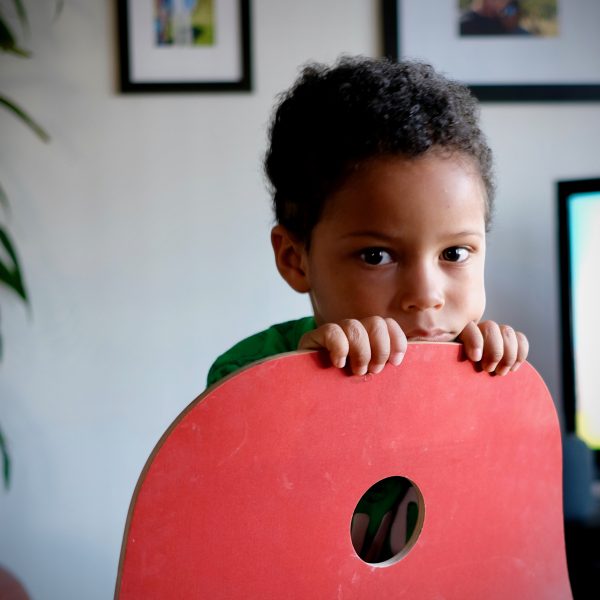The 10 commandments of a reflective educator

Reflective practice is an area of concern for many educators. For some, it may feel critical or raise questions about practice that are challenging. But the more it becomes a regular part of daily practice, the more opportunities it opens up for us as and for the children and communities we support. Here are 10 tips for becoming a reflective educator.
Make time for reflection
The more you practice being reflective, the easier it becomes. Start by building reflection time into your timetable. (Daily, even for a short time.) Perhaps while children are sleeping, or during planning time. Each educator is responsible for their own reflection but service leaders can also build team reflection opportunities into team or room meetings.
Create a safe space
Reflection can seem scary if we don’t feel safe and supported. It’s a good idea to make an agreement with your colleagues about expectations so attitudes and practices can be examined without judgement.
Observe
Become hyper-alert to what is going on in a chosen situation. It might be a routine or a programmed play experience. Notice as much as you can about what is happening – for you, what are you thinking, what are your colleagues doing, what are children doing? Try breaking your observation into parts – before, during, after.
Listen
Similar to observing, but also easily overlooked. Practise active listening as well as being silent and listening for what is happening around you. What are children sounding like, saying, not saying? What are you saying, not saying? How much sound is there? Sometimes we don’t realise how loud spaces can be, or how often we say ‘no’ until we deliberately focus on listening. We might also hear children’s discussions that prompt us to think about social justice ideas and inclusion.
Take a different perspective
Think about what you have just seen or heard and imagine it from another point of view. What would it look like to a child, to your manager, to a parent, to a grandparent, to another professional, to a person from another culture? Take a critical view. Ask reflective questions such as: Who is advantaged? Who is disadvantaged? If this was me or my child in this situation, what might I think about it? Ask yourself ‘what if’ questions.
Reach out to your colleagues and leaders
Collaborating with colleagues and leaders helps you step outside of yourself and hear some different points of view. You can also learn about the process of reflection from others. Collaborating with your team on reflective practices by jointly discussing practices and outcomes also helps you put your plans into action and keep the cycle of reflection growing.
Engage with professional resources and learning
Reading studies, articles and blogs, listening to podcasts and engaging with professional learning can really help kick off the reflection process. We might hear or read about something happening at another service and wonder how it might work for us and start asking questions. Or we might already have been noticing things at our work and want to understand more about possible changes, or why we don’t want change. Reflection doesn’t always mean something has to change, but it asks us to interrogate what we do.
Follow your own interests
Remember to include the parts of your program, environments, curriculum or interactions that are working well in your reflective practice. It’s just as important to reflect on what make these work as the areas that need improvement. If you can drill down to see why something worked well you can then incorporate these elements in other parts of your practice.
Write your reflections and plans down
Writing down main points and ideas from your reflections is great for supporting your quality assessment and rating processes. It also helps order your thoughts, keeps you accountable and contributes to the whole process of programming and planning. I like to keep a list of prompting reflective questions and jot down thoughts as they come along. Then I can build on them or follow up ideas from someone else, or look for evidence to support my ideas and how to implement them.
Finally, be brave
Reflection can be challenging. But we have a duty to provide high quality care and education to all our children. This means constantly striving to do and be better, being brave and shining a spotlight into corners we might prefer to leave untouched. Lots of our best achievements come from decisions to do or try something new and that usually starts with a challenge. Role model to our children and community how to be brave and keep growing.
This article has been adapted from an interview published in a recent edition of Roundtable magazine, and has been adapted with author permission.
The original article will be made available on the archive section of the CCCA website in due course, and can be accessed here in future.
Popular

Quality
Practice
Provider
Research
Workforce
Honouring the quiet magic of early childhood
2025-07-11 09:15:00
by Fiona Alston

Policy
Practice
Provider
Quality
Workforce
Minister Jess Walsh signals urgent action on safety and oversight in early learning
2025-07-11 08:45:01
by Fiona Alston

Workforce
Policy
Quality
Practice
Provider
Research
The silent oath: Why child protection is personal for every educator
2025-07-17 09:00:31
by Fiona Alston








